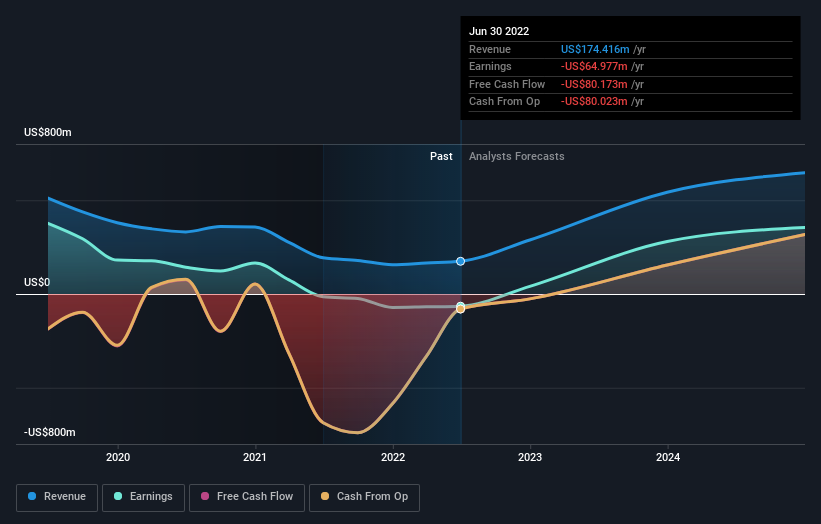Burford Capital Limited (LON:BUR) surges 10%; retail investors who own 45% shares profited along with institutions
Key Insights
Significant control over Burford Capital by retail investors implies that the general public has more power to influence management and governance-related decisions
The top 25 shareholders own 47% of the company
To get a sense of who is truly in control of Burford Capital Limited (LON:BUR), it is important to understand the ownership structure of the business. The group holding the most number of shares in the company, around 45% to be precise, is retail investors. Put another way, the group faces the maximum upside potential (or downside risk).
Following a 10% increase in the stock price last week, retail investors profited the most, but institutions who own 45% stock also stood to gain from the increase.
Let's take a closer look to see what the different types of shareholders can tell us about Burford Capital.
Check out our latest analysis for Burford Capital
What Does The Institutional Ownership Tell Us About Burford Capital?
Institutions typically measure themselves against a benchmark when reporting to their own investors, so they often become more enthusiastic about a stock once it's included in a major index. We would expect most companies to have some institutions on the register, especially if they are growing.
As you can see, institutional investors have a fair amount of stake in Burford Capital. This can indicate that the company has a certain degree of credibility in the investment community. However, it is best to be wary of relying on the supposed validation that comes with institutional investors. They too, get it wrong sometimes. When multiple institutions own a stock, there's always a risk that they are in a 'crowded trade'. When such a trade goes wrong, multiple parties may compete to sell stock fast. This risk is higher in a company without a history of growth. You can see Burford Capital's historic earnings and revenue below, but keep in mind there's always more to the story.
Hedge funds don't have many shares in Burford Capital. Columbia Management Investment Advisers, LLC is currently the company's largest shareholder with 5.0% of shares outstanding. For context, the second largest shareholder holds about 4.8% of the shares outstanding, followed by an ownership of 4.7% by the third-largest shareholder. Jonathan Molot, who is the second-largest shareholder, also happens to hold the title of Chief Investment Officer. In addition, we found that Christopher Bogart, the CEO has 4.6% of the shares allocated to their name.
On studying our ownership data, we found that 25 of the top shareholders collectively own less than 50% of the share register, implying that no single individual has a majority interest.
Researching institutional ownership is a good way to gauge and filter a stock's expected performance. The same can be achieved by studying analyst sentiments. There are plenty of analysts covering the stock, so it might be worth seeing what they are forecasting, too.
Insider Ownership Of Burford Capital
The definition of company insiders can be subjective and does vary between jurisdictions. Our data reflects individual insiders, capturing board members at the very least. Company management run the business, but the CEO will answer to the board, even if he or she is a member of it.
Most consider insider ownership a positive because it can indicate the board is well aligned with other shareholders. However, on some occasions too much power is concentrated within this group.
It seems insiders own a significant proportion of Burford Capital Limited. It has a market capitalization of just UK£2.2b, and insiders have UK£227m worth of shares in their own names. That's quite significant. It is good to see this level of investment. You can check here to see if those insiders have been buying recently.
General Public Ownership
The general public-- including retail investors -- own 45% stake in the company, and hence can't easily be ignored. This size of ownership, while considerable, may not be enough to change company policy if the decision is not in sync with other large shareholders.
Next Steps:
It's always worth thinking about the different groups who own shares in a company. But to understand Burford Capital better, we need to consider many other factors. For instance, we've identified 1 warning sign for Burford Capital that you should be aware of.
If you would prefer discover what analysts are predicting in terms of future growth, do not miss this free report on analyst forecasts.
NB: Figures in this article are calculated using data from the last twelve months, which refer to the 12-month period ending on the last date of the month the financial statement is dated. This may not be consistent with full year annual report figures.
Have feedback on this article? Concerned about the content? Get in touch with us directly. Alternatively, email editorial-team (at) simplywallst.com.
This article by Simply Wall St is general in nature. We provide commentary based on historical data and analyst forecasts only using an unbiased methodology and our articles are not intended to be financial advice. It does not constitute a recommendation to buy or sell any stock, and does not take account of your objectives, or your financial situation. We aim to bring you long-term focused analysis driven by fundamental data. Note that our analysis may not factor in the latest price-sensitive company announcements or qualitative material. Simply Wall St has no position in any stocks mentioned.
Join A Paid User Research Session
You’ll receive a US$30 Amazon Gift card for 1 hour of your time while helping us build better investing tools for the individual investors like yourself. Sign up here

 Yahoo Finance
Yahoo Finance 

